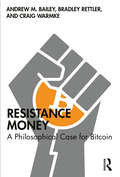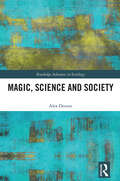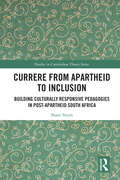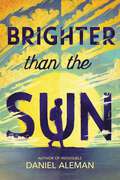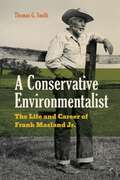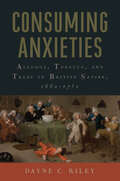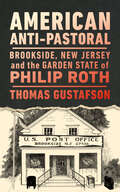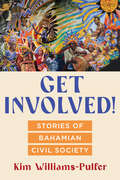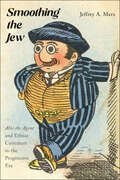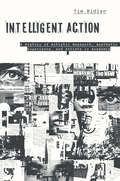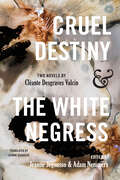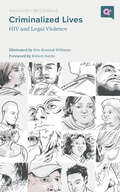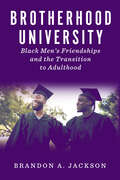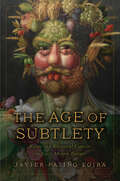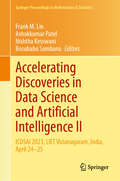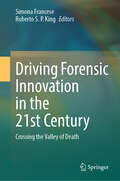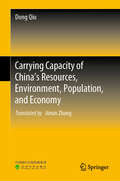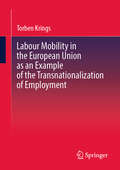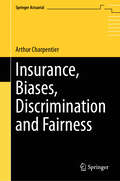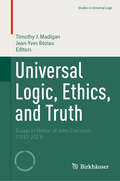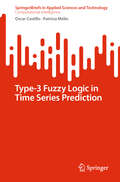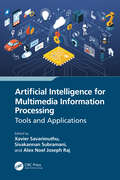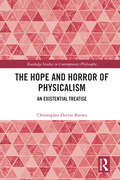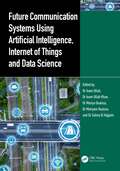- Table View
- List View
Resistance Money: A Philosophical Case for Bitcoin
by Andrew M. Bailey Bradley Rettler Craig WarmkeBitcoin isn’t just for criminals, speculators, or wealthy Silicon Valley entrepreneurs – despite what the headlines say. In an imperfect world of rampant inflation, creeping authoritarianism, surveillance, censorship, and financial exclusion, bitcoin empowers individuals to elude the expanding reach and tightening grip of institutions both public and private. So although bitcoin is money, it isn’t just money. Bitcoin is resistance money.Resistance Money: A Philosophical Case for Bitcoin begins by explaining why bitcoin was invented, how it works, and where it fits among other kinds of money. The authors then offer a framework for evaluating bitcoin from a global perspective and use it to examine bitcoin’s monetary policy, censorship-resistance, privacy, inclusion, and energy use. The book develops a comprehensive and measured case that bitcoin is a net benefit to the world, despite its imperfections. Resistance Money is intended for all, from the clueless to the specialist, from the proponent to the die-hard skeptic, and everyone in between.Key Features: Provides a philosophical approach that makes use of multiple disciplines in its analysis Offers a clearly written, measured academic treatment of bitcoin, comprehensive in scope and free of ideological baggage Includes information on the financial, social, and environmental costs of bitcoin, how these costs are sometimes exaggerated, and how they might be mitigated Addresses the strongest arguments against bitcoin and shows how some succeed and most come up short.
Magic, Science and Society (Routledge Advances in Sociology)
by Alex DennisMagic, Science and Society investigates the way the ‘rationality debate’ has developed over the last century, from E.E. Evans-Pritchard’s study of Azande magic, through Peter Winch’s argument that there can be no such thing as a social science, across the arguments about the proper status of science in the 1970s and 1980s, to the ‘epistemological’ and ‘ontological’ turns of the early twenty-first century.Different people have different understandings of what is rational: some practise magic, some orientate to legal convention and tradition and others defer to science and logic. Starting with anthropological studies of witchcraft, and working through to contemporary debates about epistemology and ontology in social science, this book systematically examines the ways key questions about these issues have been framed and answered. These include: Can ‘magic’ be real, either for members of the cultures that practise it or more generally? How can we arbitrate between different types of rationality? Is science a benchmark for studying other forms of rationality or just a cultural practice like any other? What are the implications of these issues for the social sciences themselves? This book will be of interest to anthropologists, sociologists, philosophers of the social sciences and science studies practitioners.
Currere from Apartheid to Inclusion: Building Culturally Responsive Pedagogies in Post-Apartheid South Africa (ISSN)
by Shani SteynThis volume demonstrates the instrumental use of Currere as a methodology to bring about Deracialisation through transformational learning by a white educator in Post-Apartheid South Africa.Offering an honest and vulnerable recognition of privilege and exclusivity, it disrupts deep-seated racial bias and assumptions, unveils racial blind spots, and confronts the discourse that South African "white" educators are, overtly or covertly, perpetuating systemic racism within schools. Based on autoethnographic analyses of the author’s lived educational experiences within the Apartheid regime, it uses the theoretical concepts of Currere to initiate her journey towards Deracialisation and transform her current pedagogical practice. In doing so, the book demonstrates how critical self-examination of underlying beliefs that lead to actions, and how the past – in this case, being born, raised, and educated within the Apartheid era – can influence one’s teaching in ways that harm the educational development of culturally diverse learners.Grappling with how autoethnographical experiences in a specific setting can inform current pedagogy, and be used to bring about professional and personal transformation, this book will be of interest to scholars, postgraduate students, and educational researchers with interests in curriculum theory, race and education, transformative learning, Deracialisation, and autoethnography.
Brighter Than the Sun
by Daniel AlemanA timely and thought-provoking story about a teen girl shouldering impossibly large responsibilities and ultimately learning that she doesn&’t have to do it alone from the award-winning author of Indivisible. Every morning, sixteen-year-old Sol wakes up at the break of dawn in her hometown of Tijuana, Mexico and makes the trip across the border to go to school in the United States. Though the commute is exhausting, this is the best way to achieve her dream: becoming the first person in her family to go to college. When her family&’s restaurant starts struggling, Sol must find a part-time job in San Diego to help her dad put food on the table and pay the bills. But her complicated school and work schedules on the US side of the border mean moving in with her best friend and leaving her family behind. With her life divided by an international border, Sol must come to terms with the loneliness she hides, the pressure she feels to succeed for her family, and the fact that the future she once dreamt of is starting to seem unattainable. Mostly, she&’ll have to grapple with a secret she&’s kept even from herself: that maybe she&’s relieved to have escaped her difficult home life, and a part of her may never want to return.
A Conservative Environmentalist: The Life and Career of Frank Masland Jr.
by Thomas G. SmithA wealthy textile titan from Carlisle, Pennsylvania, Frank Masland Jr. was an ardent political conservative and an equally fervent conservationist who was well known and highly respected in the mid-twentieth-century environmental preservation community. This eye-opening biography charts Masland’s life work, telling the story of how he and fellow Republicans worked with Democrats to expand the national park system, preserve wild country, and protect the environment. Though a conservative conservationist appears to be a contradiction in terms today, this was not necessarily the case when Masland and his compatriots held sway. Conservatives, Masland insisted, had a duty to be good stewards of the earth for present and future generations, and they worked closely with members of both parties in Congress and nonpolitical conservation groups to produce landmark achievements. When conservatives turned against environmentalism during the Reagan presidency, Masland refused to join what historians have termed the “Republican reversal.” During his long life of nearly a hundred years, Masland used his voice, influence, experiences with nature, and considerable wealth to champion environmental causes at the national, state, and local levels. Engaging, informative, and at times eyebrow-raising, this portrait of a passionately anti-statist nature-loving Republican environmentalist documents the history of the twentieth-century conservation movement and reminds us of a time when conservative Republicans could work with liberal Democrats to protect the environment.
Consuming Anxieties: Alcohol, Tobacco, and Trade in British Satire, 1660-1751 (Transits: Literature, Thought & Culture, 1650-1850)
by Dayne C. RileyWriters of the late seventeenth and early eighteenth centuries—a period of vast economic change—recognized that the global trade in alcohol and tobacco promised a brighter financial future for England, even as overindulgence at home posed serious moral pitfalls. This engaging and original study explores how literary satirists represented these consumables—and related anxieties about the changing nature of Britishness—in their work. Riley traces the satirical treatment of wine, beer, ale, gin, pipe tobacco, and snuff from the beginning of Charles II’s reign, through the boom in tobacco’s popularity, to the end of the Gin Craze in libertine poems and plays, anonymous verse, ballad operas, and the satire of canonical writers such as Gay, Pope, and Swift. Focusing on social concerns about class, race, and gender, Consuming Anxieties examines how satirists championed Britain’s economic strength on the world stage while critiquing the effects of consumable luxuries on the British body and consciousness.
American Anti-Pastoral: Brookside, New Jersey and the Garden State of Philip Roth (CERES: Rutgers Studies in History)
by Thomas GustafsonOne of the best-known novels taking place in New Jersey, Philip Roth’s 1997 American Pastoral uses the fictional hamlet of Old Rimrock, NJ as a microcosm for a nation in crisis during the cultural upheavals of the 1960s-70s. Critics have called Old Rimrock mythic, but it is based on a very real place: the small Morris county town of Brookside, New Jersey. American Anti-Pastoral reads the events in Roth’s novel in relation to the history of Brookside and its region. While Roth’s protagonist Seymour “Swede” Levov initially views Old Rimrock as an idyllic paradise within the Garden State, its real-world counterpart has a more complex past in its origins as a small industrial village, as well as a site for the politics of exclusionary zoning and a 1960s anti-war protest at its celebrated 4th of July parade. Literary historian and Brookside native Thomas Gustafson casts Roth’s canonical novel in a fresh light as he studies both Old Rimrock in comparison to Brookside and the novel in relationship to NJ literature, making a case for it as the Great New Jersey novel. For Roth fans and history buffs alike, American Anti-Pastoral peels back the myths about the bucolic Garden State countryside to reveal deep fissures along the fault-lines of race and religion in American democracy.
Get Involved!: Stories of Bahamian Civil Society (Critical Caribbean Studies)
by Kim Williams-PulferPhilanthropy is commonly depicted as a universal practice and is either valued for supporting community transformation or critiqued for limiting social justice. However, dominant definitions and even popular connotations tend to privilege wealthy Western approaches. Using the Caribbean as a rich site of observance and concentrating on the island nation-state of The Bahamas, Get Involved! uncovers the hidden and under-documented activities of “philanthropy from below,” revealing a broader conception of philanthropy and civil society, especially within Black and other historically marginalized populations. Kim Williams-Pulfer draws on narrative analysis from enslavement to the current post-post-colonial moment, depicting the repertoires and practices of primarily Afro-Bahamians through the stories emerging from history (including the transnational observations of Zora Neale Hurston, social movements, and political and social institution building), the arts (from Junkanoo, literature, and visual practices), to the lived experiences of contemporary civil society leaders. Get Involved! shows the long history and continued significance of civil society and philanthropic engagement in The Bahamas, the circum-Caribbean, and the wider African Diaspora. Junkanoo is the national cultural festival of The Bahamas. It fosters a sense of community pride, identity, companionship, spirituality and unity. Watch a video about Junknoo: https://www.youtube.com/watch?v=tnMpMesNb1Q&t=14s
Smoothing the Jew: "Abie the Agent" and Ethnic Caricature in the Progressive Era
by Jeffrey A. MarxThe turn of the nineteenth century in the United States saw the substantial influx of immigrants and a corresponding increase in anti-immigration and nativist tendencies among longer-settled Americans. Jewish immigrants were often the object of such animosity, being at once the object of admiration and anxiety for their perceived economic and social successes. One result was their frequent depiction in derogatory caricatures on the stage and in print. Smoothing the Jew investigates how Jewish artists of the time attempted to “smooth over” these demeaning portrayals by focusing on the first Jewish comic strip published in English, Harry Hershfield’s Abie the Agent. Jeffrey Marx demonstrates how Hershfield created a Jewish protagonist who in part reassured nativists of the Jews’ ability to assimilate into American society while also encouraging immigrants and their children that, over time, they would be able to adopt American customs without losing their distinctly Jewish identity.
Intelligent Action: A History of Artistic Research, Aesthetic Experience, and Artists in Academia
by Timothy RidlenThrough archival research and analysis of artworks by Gyorgy Kepes, Allan Kaprow, Mel Bochner, and Suzanne Lacy, among others, Intelligent Action examines how these artists brought alternatives to dominant conceptions of research and knowledge production. The book is organized around specific institutional formations—artistic research centers, proposals, exhibitions on college campuses, and the establishment of new schools or pedagogic programs. Formal and social analysis demonstrate how artists responded to ideas of research, knowledge production, information, and pedagogy. Works discussed were produced between 1958 and 1975, a moment when boundaries between media were breaking down in response to technological, cultural, and generational change. In the context of academia, these artistic practices have taken up the look, feel, or language of various research and teaching practices. In some cases, artists bent to the demands of the cold war research university, while in others, artists developed new modes of practice and pedagogy. Reading these works through their institutional histories, author Tim Ridlem shows how artistic research practices and artistic subjectivity developed in the long 1960s within and alongside academia, transforming the role of artists in the process.
Cruel Destiny and The White Negress: Two Novels by Cléante Desgraves Valcin
by Cléante D. ValcinCléante Desgraves Valcin (1891-1956) was a poet, writer, and feminist—most prominently Haiti’s first published female novelist, who employed her sentimental fiction to explore matters of race, gender, nationalism, and sovereignty. A contemporary of Harlem Renaissance writers such as Nella Larsen and Zora Neale Hurston, Valcin emerged as an influential writer and political figure among the Black Atlantic diaspora. Now, for the first time, her two acclaimed novels are available in English translation. Cruel Destiny (1929) tells the tragic love story of Armand and Adeline, drawn together by a magnetic attraction, yet kept apart by a dark family secret. Depicting the heavy expectations placed upon women in Haiti’s elite society, it also explores the troubled and twisted relationships between the Haitians and their former colonial masters, the French. In The White Negress (1934), a Frenchwoman moves to Haiti and is torn between two very different men, a Black Haitian lawyer, and a white American carpetbagger. Putting a fresh spin on the tired tragic mulatta trope, Valcin reveals the racial prejudices, class tensions, and anti-colonial resentments of an island under American occupation. Together, these two novels expand our understanding of Caribbean literature, as well as the political struggles and artistic triumphs of Black women in the Americas.
Criminalized Lives: HIV and Legal Violence (Q+ Public)
by Alexander McClellandCanada has been known as a hot spot for HIV criminalization where the act of not disclosing one’s HIV-positive status to sex partners has historically been regarded as a serious criminal offence. Criminalized Lives describes how this approach has disproportionately harmed the poor, Black and Indigenous people, gay men, and women in Canada. In this book, people who have been criminally accused of not disclosing their HIV-positive status, detail the many complexities of disclosure, and the violence that results from being criminalized. Accompanied by portraits from artist Eric Kostiuk Williams, the profiles examine whether the criminal legal system is really prepared to handle the nuances and ethical dilemmas faced everyday by people living with HIV. By offering personal stories of people who have faced criminalization first-hand, Alexander McClelland questions common assumptions about HIV, the role of punishment, and the violence that results from the criminal legal system’s legacy of categorizing people as either victims or perpetrators. Note: A regrettable error appears on page 22. The number 240 should be 206 when referring to the number of people prosecuted in relation to allegations of HIV nondisclosure. This will be fixed in future reprints.
Brotherhood University: Black Men's Friendships and the Transition to Adulthood (The American Campus)
by Brandon A. JacksonHow do young Black men navigate the transition to adulthood in an era of labor market precarity, an increasing emphasis on personal independence, and gendered racism? In Brotherhood University, Brandon A. Jackson utilizes longitudinal qualitative data to examine the role of emotions and social support among a group of young Black men as they navigate a “structural double bind” as college students and into early adulthood. While prevailing stereotypes portray young Black men as emotionally aloof, Jackson finds that the men invested in an emotion culture characterized by vulnerability, loyalty, and trust, which created a system of mutual social support, or brotherhood, among the group as they navigated college, prepared for the labor market, and experienced romantic relationships. Ten years later, as they managed the early stages of their careers and considered marriage and child-rearing, the men continued to depend on the emotional vulnerability and close relationships they forged in their college years.
The Age of Subtlety: Nature and Rhetorical Conceits in Early Modern Europe (The Early Modern Exchange)
by Javier Patiño LoiraA craze for intricate metaphors, referred to as conceits, permeated all forms of communication in seventeenth-century Italy and Spain, reshaping reality in highly creative ways. The Age of Subtlety: Nature and Rhetorical Conceits in Early Modern Europe situates itself at the crossroads of rhetoric, poetics, and the history of science, analyzing technical writings on conceits by such scholars as Baltasar Gracián, Matteo Peregrini, and Emanuele Tesauro against the background of debates on telescopic and microscopic vision, the generation of living beings, and the boundaries between the natural and the artificial. It contends that in order to understand conceits, we must locate them within the early modern culture of ingenuity that was also responsible for the engineer’s machines, the juggler’s sleight of hand, the wiles of the statesman, and the discovery of truths about nature.
Accelerating Discoveries in Data Science and Artificial Intelligence II: ICDSAI 2023, LIET Vizianagaram, India, April 24–25 (Springer Proceedings in Mathematics & Statistics #438)
by Nishtha Kesswani Frank M. Lin Ashokkumar Patel Bosubabu SambanaThis edited volume on machine learning and big data analytics (Proceedings of ICDSAI 2023), that was held on April 24-25, 2023 by CSUSB USA, International Association of Academicians (IAASSE), and Lendi Institute of Engineering and Technology, Vizianagaram, India is intended to be used as a reference book for researchers and practitioners in the disciplines of AI and Data Science. With the fascinating development of technologies in several industries, there are numerous opportunities to develop innovative intelligence technologies to solve a wide range of uncertainties in various real-life problems. Researchers and academics have been drawn to building creative AI strategies by combining data science with classic mathematical methodologies. The book brings together leading researchers who wish to continue to advance the field and create a broad knowledge about the most recent research.
Driving Forensic Innovation in the 21st Century: Crossing the Valley of Death
by Simona Francese Roberto S. P. KingThis contributed volume offers a comprehensive and multifaceted understanding of the current forensic innovation, landscape, enablers, road blockers, and barriers to implementation. It also presents all aspects that need consideration to cross the valley of death between an idea and its successful implementation. It uniquely merges the technical and scientific aspects of some of the innovations that have been implemented across forensic science within the National and International landscape and with i) the necessary considerations to take into account on the road to success, such as business planning, data privacy, and legal and regulatory aspects, ii) the end-users perspective and iii) the industry perspective. Case studies illustrate "what success looks like" by discussing forensic innovations that have made it to the market and have subsequently impacted positively on criminal investigations. This book acts as a platform to facilitate the dialogue between key stakeholders in driving innovation namely academia, industry, and end-users as well as indicating a roadmap to facilitate practical developments, whilst serving as a revolutionary springboard to initiate an innovation-transforming paradigm shift. This volume is a valuable contribution to the field and is of great interest to graduates and researchers engaged in forensic science, forensic service providers and manufacturers as well as policymakers.
Carrying Capacity of China’s Resources, Environment, Population, and Economy
by Dong QiuThis book systematically examines the progression of carrying capacity research and its correlation with sustainable development, constructing a new framework of interactive theory and application methods within the context of sustainable development. Additionally, it links carrying capacity theory and methods with the unique challenges faced by China in achieving sustainable development. The book delves into the implementation of sustainable development strategies tailored to China’s specific circumstances. In practical research, the book conducts comprehensive calculations and analyses of the carrying capacity of various regions in China from resource, environmental, and economic perspectives. It employs various analytical approaches to elucidate and investigate three key issues in China’s current development landscape: regional functional planning, urban-rural coordinated development, and the transformation of economic growth models. The book is intended to unveil more efficacious solutions, pathways, and measures to address these challenges.
Labour Mobility in the European Union as an Example of the Transnationalization of Employment
by Torben KringsThis book examines the changing significance of intra-European labor mobility in the 21st century. The focus is on the driving forces, the labor market effects and the regulation of this mobility. It is shown that there is a demand for workers with different qualifications in the "post-industrial" societies of Western Europe. This demand is primarily met by migration from the enlarged EU. However, this is no longer traditional labor migration, but the mobility of EU citizens. This brings with it new opportunities, but also challenges in a transnational mobility space, which is also a space of inequality.
Insurance, Biases, Discrimination and Fairness (Springer Actuarial)
by Arthur CharpentierThis book offers an introduction to the technical foundations of discrimination and equity issues in insurance models, catering to undergraduates, postgraduates, and practitioners. It is a self-contained resource, accessible to those with a basic understanding of probability and statistics. Designed as both a reference guide and a means to develop fairer models, the book acknowledges the complexity and ambiguity surrounding the question of discrimination in insurance. In insurance, proposing differentiated premiums that accurately reflect policyholders' true risk—termed "actuarial fairness" or "legitimate discrimination"—is economically and ethically motivated. However, such segmentation can appear discriminatory from a legal perspective. By intertwining real-life examples with academic models, the book incorporates diverse perspectives from philosophy, social sciences, economics, mathematics, and computer science. Although discrimination has long been a subject of inquiry in economics and philosophy, it has gained renewed prominence in the context of "big data," with an abundance of proxy variables capturing sensitive attributes, and "artificial intelligence" or specifically "machine learning" techniques, which often involve less interpretable black box algorithms.The book distinguishes between models and data to enhance our comprehension of why a model may appear unfair. It reminds us that while a model may not be inherently good or bad, it is never neutral and often represents a formalization of a world seen through potentially biased data. Furthermore, the book equips actuaries with technical tools to quantify and mitigate potential discrimination, featuring dedicated chapters that delve into these methods.
Universal Logic, Ethics, and Truth: Essays in Honor of John Corcoran (1937-2021) (Studies in Universal Logic)
by Jean-Yves Béziau Timothy J. MadiganJohn Corcoran was a very well-known logician who worked on several areas of logic. He produced decisive works giving a better understanding of two major figures in the history of logic, Aristotle and Boole. Corcoran had a close association with Alfred Tarski, a prominent 20th-century logician. This collaboration manifested in Corcoran's substantial introduction to Tarski's seminal book, Logic, Semantics, Metamathematics (1956). Additionally, Corcoran's posthumous editorial involvement in 'What are logical notions?' (1986) breathed new life into this seminal paper authored by Tarski. His scholarly pursuits extended to the intricate explication of fundamental concepts in modern logic, including variables, propositions, truth, consequences, and categoricity. Corcoran's academic curiosity extended further to the intersection of ethics and logic, reflecting his contemplation of their interrelation. Beyond these theoretical contributions, Corcoran was deeply engaged in the pedagogical dimensions of logic instruction. This volume serves as a compilation of articles contributed by Corcoran's students, colleagues, and international peers. By encompassing a diverse range of subjects, this collection aptly mirrors Corcoran's wide-ranging interests, offering insights that not only deepen our understanding of his work but also advance the theoretical frameworks he explored.
Type-3 Fuzzy Logic in Time Series Prediction (SpringerBriefs in Applied Sciences and Technology)
by Oscar Castillo Patricia MelinThis book focuses on the field of type-3 fuzzy logic for applications in time series prediction. The main idea is that a higher type and order of fuzzy logic can help in solving various prediction problems and find better results. In addition, neural networks and fractal theory are employed in enhancing prediction results. In this regard, several hybrid intelligent methods are offered. In this book we test the proposed methods using several prediction problems, like predicting COVID-19 and the stock market. We can notice that when Type-3 fuzzy systems are implemented to model the behavior of systems, the results in prediction are enhanced, because the management of uncertainty is better. For this reason, we consider in this book the proposed methods using type-3 fuzzy systems, neural networks and fractal theory to improve the prediction behavior of the complex nonlinear systems. This book is intended to be a reference for scientists and engineers interested in applying type-3 fuzzy logic techniques for solving complex prediction problems. This book can also be used as a reference for graduate courses like the following: soft computing, fuzzy logic, neural networks, bio-inspired algorithms, intelligent prediction, and similar ones. We consider that this book can also be used to get novel ideas for new lines of research, or to continue the lines of research proposed by the authors of the book.
Allende and Popular Unity: The Road to Democratic Socialism (Marx and Marxisms)
by Paula Vidal Molina Ximena U. OdekerkenThis book is a fascinating collection of carefully handpicked key texts and speeches from Chile’s 1,000 Days of Revolution, previously unpublished in English. Twenty-three texts embodying the activity of Unidad Popular and Salvador Allende’s government in the early 1970s are structured around five thematic sections, which tell the story of the common challenges for progressive political organizations and social movements today. The themes of participatory democracy and sovereignty, economy and social rights, women and gender equality, indigenous people, and worker-class syndicalism and political organization guide the reader through the multidimensional and global vision of Popular Unity’s socialist project. Ideal for students, scholars, and general readers, this book introduces an extraordinary period in Chile’s history to a new generation of readers interested in the resurgence of democratic socialism around the world.
Artificial Intelligence for Multimedia Information Processing: Tools and Applications
by Xavier Savarimuthu Sivakannan Subramani Alex Noel Joseph RajAdvances in artificial intelligence (AI), widespread mobile devices, internet technologies, multimedia data sources, and information processing have led to the emergence of multimedia processing. Multimedia processing is the application of signal processing tools to multimedia data—text, audio, images, and video—to allow the interpretation of these data, particularly in urban and smart city environments. This book discusses the new standards of multimedia and information processing from several technological perspectives, including analytics empowered by AI, streaming on the intelligent edge, multimedia edge caching and AI, services for edge AI, and hardware and devices for multimedia on edge intelligence.FEATURES Covers a wide spectrum of enabling technologies for AI and machine learning for multimedia and information processing Includes many applications using AI, from robotics and driverless cars to environmental, human health, and remote sensing Presents an overview of the fundamentals of AI and multimedia processing: imaging, signal, and speech Explains new models and architectures for multimedia streaming, services, and caching for AI Discusses the emerging paradigms of the deployment of hardware and devices for multimedia on edge intelligence Gives recommendations for future research in multimedia and AI This book is written for engineers and graduate students in image and signal processing, information processing, environmental engineering, medical and public health, etc., who are interested in machine learning, deep learning, and multimedia processing.
The Hope and Horror of Physicalism: An Existential Treatise (Routledge Studies in Contemporary Philosophy)
by Christopher Devlin BrownThis book assesses the existentially relevant consequences of physicalism. It argues that accepting physicalism is the healthiest stance we can take in the face of an account of the self and world which offers no metaphysical assurances.Why should we care about physicalism? On one hand, the view seems to be inconsistent with things that many people find valuable, such as the existence of free will, God, the immortal soul, ultimate purpose, and natural laws like karma. On the other hand, physicalism seems to have positive existential implications such as supporting the unlimited potential of scientific understanding or the attitude that we need not fear supernatural powers or forces because they don’t exist. This book argues that physicalism has several consequences that are of existential import. It begins by outlining the history of physicalism and explaining two popular ways of understanding it: the via negativa approach and the theory-based approach. The rest of Part 1 explores the existential consequences of these two versions of physicalism. Part 2 draws on Nietzsche to construct an argument about what attitude we ought to adopt toward physicalism. It argues that we ought to avoid nihilism and despair even when being confronted with a picture of the universe which offers no metaphysical assurances. Finally, Part 3 is dedicated to how well physicalism deals with the hard problem of consciousness, mental causation, and multiple realization.The Hope and Horror of Physicalism will appeal to anyone interested in a contemporary approach to existential philosophy, as well as scholars and advanced students working in the fields of philosophy of mind and metaphysics.
Future Communication Systems Using Artificial Intelligence, Internet of Things and Data Science
by Dr Inam UllahFuture Communication Systems Using Artificial Intelligence, Internet of Things and Data Science mainly focuses on the techniques of artificial intelligence (AI), Internet of Things (IoT) and data science for future communications systems.The goal of AI, IoT and data science for future communications systems is to create a venue for industry and academics to collaborate on the development of network and system solutions based on data science, AI and IoT. Recent breakthroughs in IoT, mobile and fixed communications and computation have paved the way for a data‑centric society of the future. New applications are increasingly reliant on machine‑to‑machine connections, resulting in unusual workloads and the need for more efficient and dependable infrastructures. Such a wide range of traffic workloads and applications will necessitate dynamic and highly adaptive network environments capable of self‑optimization for the task at hand while ensuring high dependability and ultra‑low latency.Networking devices, sensors, agents, meters and smart vehicles/systems generate massive amounts of data, necessitating new levels of security, performance and dependability. Such complications necessitate the development of new tools and approaches for providing successful services, management and operation. Predictive network analytics will play a critical role in insight generation, process automation required for adapting and scaling to new demands, resolving issues before they impact operational performance (e.g., preventing network failures and anticipating capacity requirements) and overall network decision‑making. To increase user experience and service quality, data mining and analytic techniques for inferring quality of experience (QoE) signals are required.AI, IoT, machine learning, reinforcement learning and network data analytics innovations open new possibilities in areas such as channel modeling and estimation, cognitive communications, interference alignment, mobility management, resource allocation, network control and management, network tomography, multi‑agent systems and network ultra‑broadband deployment prioritization. These new analytic platforms will aid in the transformation of our networks and user experience. Future networks will enable unparalleled automation and optimization by intelligently gathering, analyzing, learning and controlling huge volumes of information.
